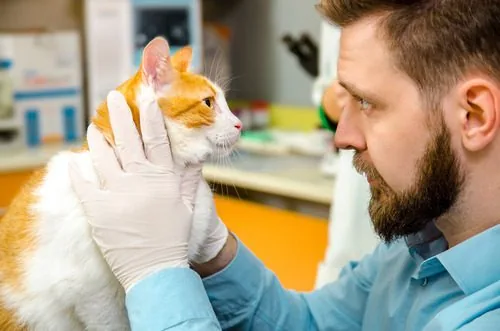Why is My Dog Vomiting Up White Foam?
Seeing your dog vomit white foam can be unsettling, especially if it happens out of nowhere. Whether it’s a one-time occurrence or something you’ve noticed more frequently, understanding the potential reasons behind this can bring peace of mind. While some causes are minor, others may require a closer look. Let’s discuss the common causes of white foam vomiting in dogs and when it might be time to reach out for professional help.

What Might Cause My Dog to Vomit White Foam?
White foam vomit can result from various conditions, some mild and others more serious. Below, we’ll break down the most common reasons for this occurrence.
Indigestion or an Empty Stomach
When your dog’s stomach is empty, the digestive acids have nothing to process, which can cause irritation. This irritation may lead to vomiting, and the frothy white substance you see is typically stomach acids mixed with saliva. Dogs that eat one or two large meals a day, rather than smaller, frequent meals, may be more prone to this type of vomiting. If your dog tends to vomit in the morning before breakfast, this might be the cause.
Gastrointestinal Issues
Gastrointestinal problems, such as gastritis or an upset stomach from consuming something they shouldn’t have, can lead to white foam vomit. Dogs that eat garbage, non-food items, or spoiled food may experience vomiting as their system tries to expel the irritant. In these cases, the vomiting may be accompanied by other symptoms such as diarrhea, lethargy, or a lack of appetite. If your dog has recently ingested something questionable, it’s a good idea to contact your vet.
Kennel Cough
Kennel cough, a contagious respiratory disease, can sometimes cause dogs to cough up white foam. The hacking cough associated with this illness can lead to retching and vomiting. If your dog has recently been in close contact with other dogs, especially in places like boarding facilities or dog parks, kennel cough could be the reason for the white foam vomiting. Look for additional signs such as a persistent, honking cough and nasal discharge.
Serious Health Concerns Linked to White Foam Vomiting
While some causes of white foam vomiting are minor, others can be more serious and warrant immediate veterinary attention. Here are some health concerns that could be causing this issue in your dog.
Pancreatitis
Pancreatitis, or inflammation of the pancreas, is a potentially life-threatening condition that can cause your dog to vomit white foam. This condition often occurs after a dog consumes a high-fat meal or treat. In addition to vomiting, dogs with pancreatitis may show signs of abdominal pain, lethargy, and loss of appetite. If you suspect your dog may have pancreatitis, seek prompt veterinary care as soon as possible.
Bloat (Gastric Dilatation-Volvulus)
Bloat is a serious condition that can cause white foam vomiting in dogs. This occurs when the stomach fills with gas and twists, cutting off blood flow. Dogs with bloat may vomit white foam as their stomach tries to empty, but they will likely be unable to pass any solid food. Other signs of bloat include a swollen or distended abdomen, restlessness, and an inability to lie down comfortably. Bloat is a medical emergency, and immediate veterinary intervention is necessary to save your dog’s life.
Could Your Dog Be Vomiting Due to Stress or Anxiety?
Stress or anxiety can also cause vomiting in dogs, including white foam. Just like people, dogs may experience digestive upset when they’re feeling stressed. A sudden change in routine, a new pet or family member, or loud noises such as thunderstorms or fireworks can trigger anxiety. If your dog is stressed, they may vomit white foam, especially if they haven’t eaten recently. Other signs of stress to look for include excessive panting, pacing, and shaking. Ensuring a calm environment may help reduce these episodes.
When Should You Contact the Veterinarian?
Although vomiting white foam can sometimes be harmless, it’s important to know when to seek professional help. If your dog vomits once and then returns to normal behavior, it may not be cause for concern. However, repeated vomiting, lethargy, or additional symptoms could indicate a more serious issue that requires veterinary attention. Contact Veterinary Village at (484) 820-1700 or schedule an appointment online if you notice persistent vomiting or any of the following signs:
- Lethargy or weakness
- Refusal to eat or drink
- Signs of abdominal pain
- Bloating or a distended abdomen
- Diarrhea or blood in the vomit
In cases where your dog’s condition worsens, immediate veterinary care can help ensure the best outcome for your pet.
What to Expect at Veterinary Village
If you need to bring your dog to the vet for vomiting white foam, you may wonder what to expect during the appointment. Your veterinarian will likely begin with a physical exam and ask about your dog’s recent behavior, diet, and exposure to other animals. Based on this information, they may recommend diagnostic tests, such as blood work or X-rays, to determine the underlying cause of the vomiting.
Ways to Treat Dog Vomiting
Treatment will depend on the cause. For mild cases of indigestion, dietary adjustments or medications to reduce stomach acid may be recommended. In more severe cases, such as pancreatitis or bloat, hospitalization and more intensive treatment may be necessary to stabilize your pet.
How Can You Help Your Dog Avoid Vomiting White Foam?
Preventing your dog from vomiting white foam may not always be possible, but there are steps you can take to minimize the likelihood of this issue.
- Feeding your dog smaller, more frequent meals can help reduce the risk of an upset stomach due to hunger.
- Keeping a close eye on what your dog eats and preventing access to garbage or non-food items can also prevent gastrointestinal upset.
- Regular vet check-ups can help catch potential health issues early before they develop into more serious problems.
- If your dog is prone to stress or anxiety, creating a calm environment and using anxiety-reducing techniques can help prevent digestive upset triggered by nervousness.
Vomiting white foam may seem minor, but it’s always better to be safe and consult your vet if you have concerns. Call Veterinary Village at (484) 820-1700 or schedule an appointment online today for expert care.
Recent Posts
About Veterinary Village
Veterinary Village offers excellent service to clients in a comfortable, friendly atmosphere. To learn more about us and how we can better serve you and your pet here in Plymouth Meeting, PA, click the button below.
Share This Post
Recent Posts
About Veterinary Village
Veterinary Village is a network of three animal hospitals based in Atlanta, GA and the surrounding area. We offer honest, excellent service to our clients in a comfortable, friendly atmosphere. To learn more about our locations and how we can better serve you and your pet, click the button below.



